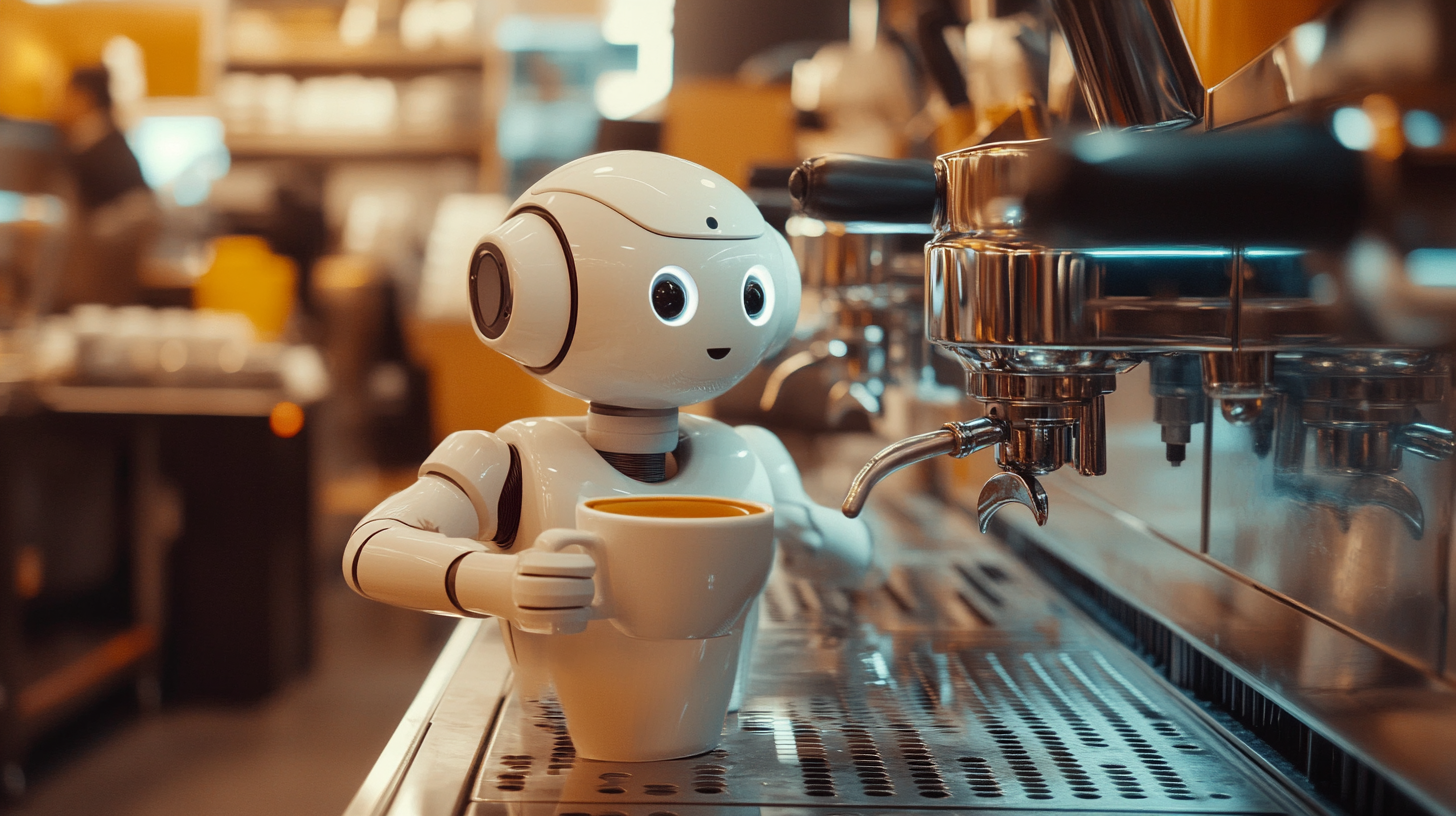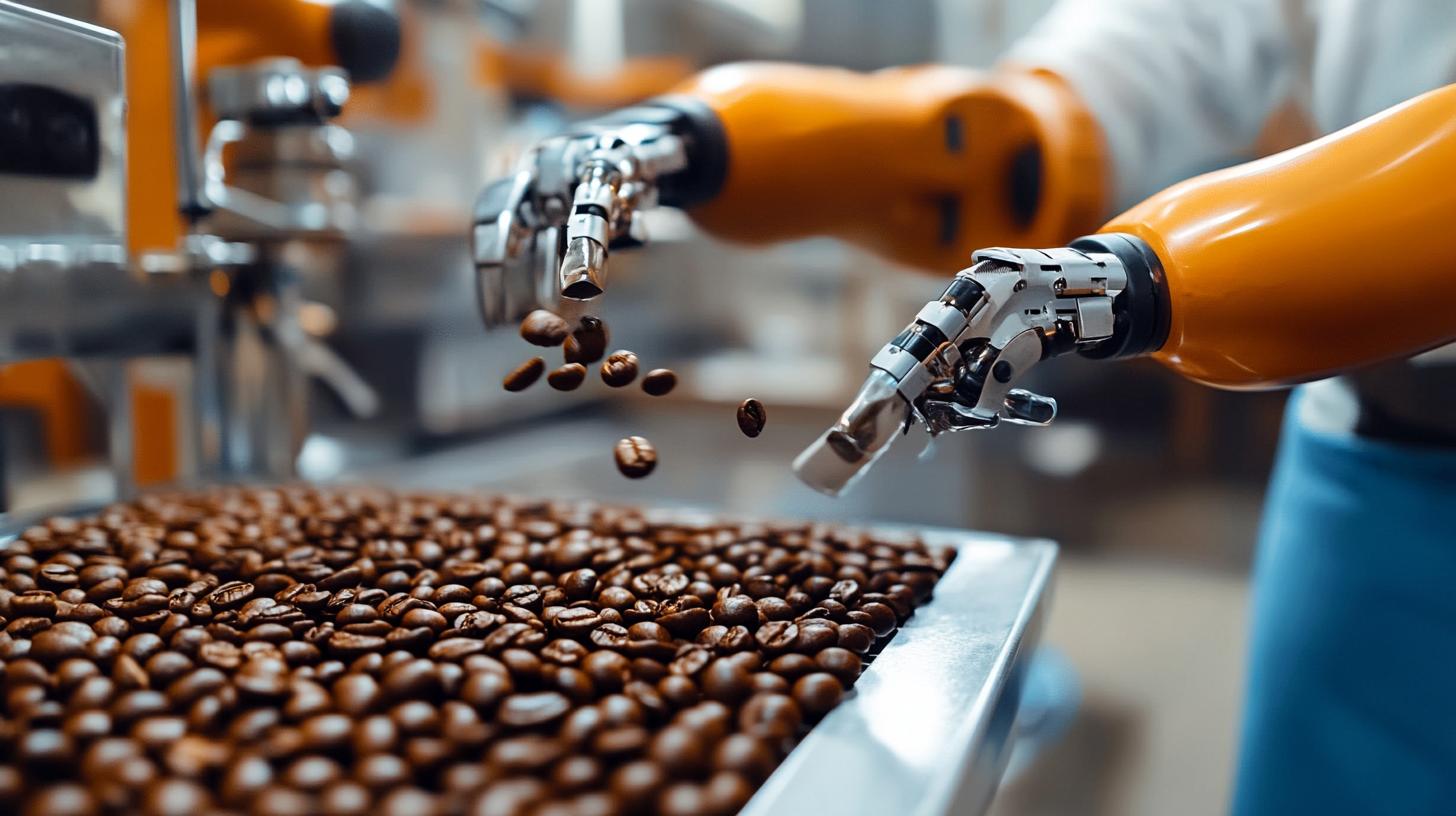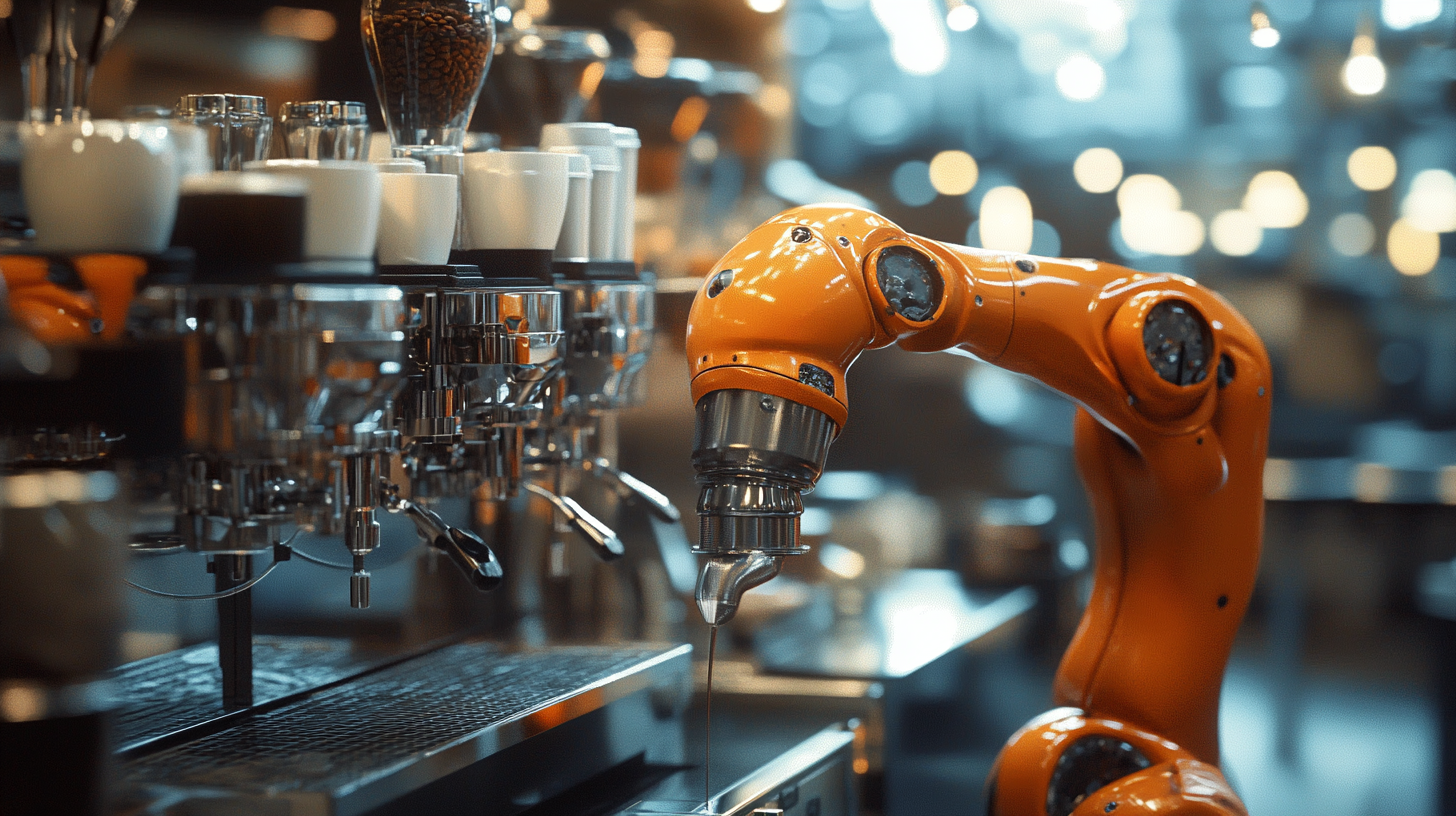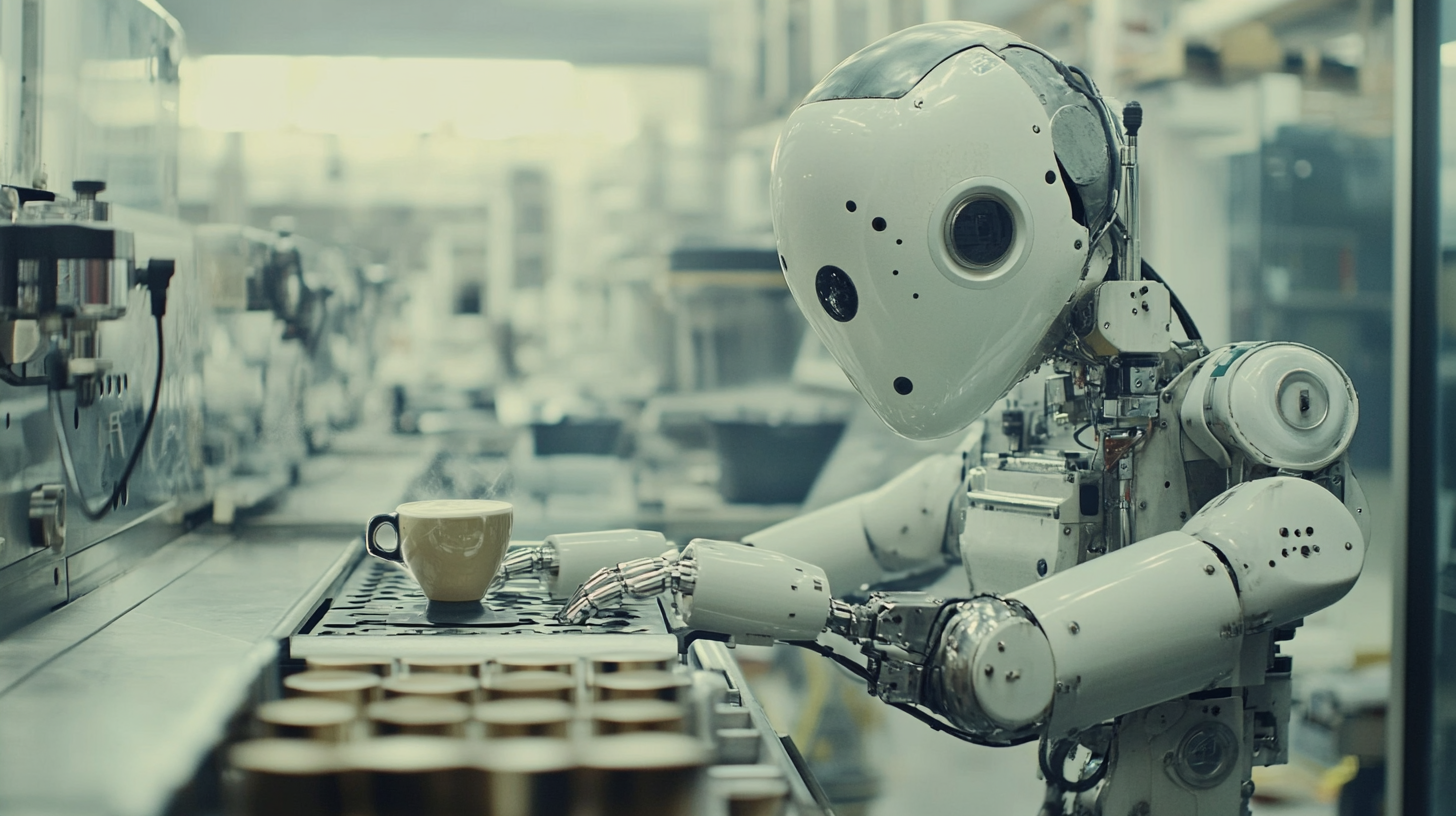Navigating the Selection Process for High Quality Coffee For Robot Commercial Manufacturers
In the rapidly evolving world of robotics, the demand for high-quality components has never been more crucial, and this extends to the often-overlooked yet essential resources like "Coffee For Robot Commercial" use. As the robotic industry continues to innovate, manufacturers are tasked with sourcing premium supplies that not only meet technical specifications but also enhance performance. Given the increasing emphasis on quality and efficiency, navigating the selection process for the right coffee blends can significantly influence not just operational success but also the overall productivity of robotic systems.
To achieve optimal results, robotic manufacturers must understand the art and science behind selecting high-quality coffee. This involves analyzing factors such as flavor profiles, sourcing methods, and sustainability practices to ensure that the coffee used contributes to enhanced performance in commercial applications. By implementing a comprehensive selection strategy, manufacturers can guarantee that their robotic systems are fully equipped with the best possible "Coffee For Robot Commercial," thereby achieving a competitive advantage in an ever-expanding marketplace. This blog aims to guide readers through the intricacies of this selection process, providing valuable insights for informed decision-making.

Understanding the Importance of Sourcing High-Quality Coffee for Automated Production
Coffee is a global commodity with a significant impact on the economy, and sourcing high-quality beans is essential for manufacturers looking to automate their production processes. According to a report by the International Coffee Organization, the total coffee production in 2020 reached approximately 170 million 60-kilogram bags. However, the quality of coffee varies greatly by origin, processing methods, and environmental conditions. This variation necessitates a focused approach to sourcing that prioritizes high-quality beans to ensure consistent flavor profiles and maintain brand integrity. Automated coffee production systems demand precision and reliability, making the selection of premium coffee essential. Research from the Specialty Coffee Association indicates that consumers are increasingly concerned about quality, with 65% of coffee drinkers willing to pay more for high-quality coffee. This trend pushes manufacturers to invest more in sourcing practices that not only enhance the flavor but also improve the overall efficiency of their automated processes. By using high-quality beans, manufacturers can reduce the margin for error in production, ultimately leading to fewer quality-control issues and better consistency in the final product. Another factor to consider is the traceability of coffee beans. In recent years, there has been a growing emphasis on ethical sourcing and sustainability. According to the Global Coffee Platform, nearly 40% of coffee producers now participate in sustainability programs, ensuring that coffee is not only high quality but also responsibly sourced. For manufacturers, aligning with these practices can not only enhance their brand reputation but also meet the increasing consumer demand for ethical products. As automation transforms coffee manufacturing, prioritizing high-quality sourcing becomes not just a competitive advantage but a necessity for long-term success.

Key Factors in Selecting Premium Coffee Beans for Robotics Applications
When selecting premium coffee beans for robotics applications, several key factors come into play that can significantly impact the overall quality and effectiveness of the final product. To start, the origin of the beans plays a crucial role. According to the Specialty Coffee Association, beans sourced from specific regions known for their unique climate and soil conditions can yield higher-quality coffee. For instance, beans from Colombia are often favored for their balanced flavor profile, which can better suit the precision machinery used in robotic systems.
Moreover, the processing method adopted by coffee producers is vital in determining the beans' flavor and chemical composition. A report from the International Coffee Organization highlights that methods such as wet processing can enhance certain desirable acidity levels and clarify flavor profiles, making the coffee more suitable for high-tech applications where taste and consistency are paramount. Additionally, the roasting time and method significantly influence the sensory qualities of the coffee. Research shows that lighter roasts retain more of the bean's natural flavor characteristics, which can be critical for specific robotics applications where the coffee’s taste needs to be precisely controlled.
Another factor to consider is the sustainability and ethical sourcing of the beans. A 2022 report from Fair Trade International reveals that consumers increasingly prefer brands that prioritize sustainability, impacting market trends and influencing purchasing decisions. For robot commercial manufacturers, aligning their coffee selection process with sustainable practices not only enhances brand image but also appeals to a growing demographic of environmentally conscious consumers. By considering these factors, manufacturers can ensure a premium product that meets both quality standards and consumer expectations in the evolving coffee industry.

Analyzing Market Trends: Demand for Specialty Coffee in Robotic Manufacturing
The demand for specialty coffee in the robotic manufacturing sector is witnessing a notable rise, driven by emerging market trends. With the service robotics market projected to reach a valuation of $36.1 billion in 2024, the integration of Internet of Things (IoT) technology is transforming operational efficiencies, leading to an increased interest in high-quality coffee among manufacturers. As the segment experiences a compound annual growth rate (CAGR) exceeding 17.1% from 2025 to 2034, understanding consumer preferences for specialty coffee becomes critical in enhancing both employee productivity and machine operation comfort.
Specialty coffee is not just a beverage but an integral part of the cultural fabric in many tech-driven workplaces, including robotic manufacturers. The rising demand highlights a growing recognition of the role that quality coffee plays in fostering an innovative working environment. With employees increasingly seeking out premium coffee options, manufacturers are urged to source high-quality beans, optimizing their selection process to align with market preferences.
Furthermore, the expected increase in the service robotics market emphasizes the necessity for manufacturers to adapt to these changes, ensuring that their coffee offerings meet the evolving standards of both quality and sustainability. By analyzing these market trends, manufacturers can better position themselves in the competitive landscape, catering to the sophisticated tastes of a growing workforce while simultaneously enhancing their operational ambiance.

Evaluating Supplier Certifications and Sustainability Practices in Coffee Sourcing
When selecting high-quality coffee for robot commercial manufacturers, evaluating supplier certifications and sustainability practices becomes paramount. Certifications such as Fair Trade, Rainforest Alliance, and Organic provide assurance that the coffee is sourced responsibly and ethically. These certifications not only signify compliance with labor and environmental standards but also indicate a commitment to sustainable farming practices. For robotic coffee manufacturers, aligning with suppliers who hold these certifications can enhance their brand reputation and appeal to environmentally conscious consumers.
In addition, examining a supplier’s sustainability practices is crucial in today’s competitive market. Various aspects, such as water usage, waste management, and energy consumption during the coffee production process, play a significant role in the overall sustainability of the product. Suppliers that implement eco-friendly practices—like using renewable energy sources, minimizing carbon footprints, and promoting biodiversity in coffee cultivation—can contribute positively to a manufacturer’s environmental goals. Choosing partners with robust sustainability credentials not only supports ecological preservation but also resonates with consumers who prioritize ethical consumption.
Moreover, the relationship between supplier practices and the quality of the coffee cannot be overlooked. Sustainable farming methods often lead to better flavor profiles as farmers invest time and care into their crops. This results in a superior product that stands out in the market. Therefore, robot commercial manufacturers should consider both certifications and sustainable practices as critical factors in their sourcing strategy to ensure they deliver exceptional coffee to their customers.
Impact of Quality Coffee on Machine Performance and Customer Satisfaction in the Industry
The impact of quality coffee on machine performance and customer satisfaction in the coffee industry is profound and multifaceted. A recent study from the Specialty Coffee Association highlights that nearly 70% of consumers are willing to pay more for coffee that is certified as high quality. This commitment to quality not only influences purchase behavior but also significantly affects the overall perception of coffee machines that utilize these premium beans. Machines that consistently produce superior coffee brew experiences drive customer retention and loyalty, enhancing brand reputation in a competitive market.
Moreover, with the advent of AI-enabled customer service in the coffee sector, businesses are finding new ways to engage consumers and improve satisfaction. Institutions that have implemented AI solutions report a 30% increase in customer engagement levels and a notable improvement in personalized service experiences. For coffee manufacturers, leveraging AI tools not only streamlines customer interactions but also helps in understanding consumer preferences better. Customization options based on individual tastes can amplify satisfaction, leading to repeat purchases and positive recommendations, which are crucial in an industry where word-of-mouth plays a critical role.
In essence, high-quality coffee acts as a catalyst for enhanced machine performance, directly correlating to customer satisfaction. As consumers become more discerning about their coffee choices, manufacturers must place a premium on sourcing quality beans. Integrating modern technology in customer service will further elevate the consumer experience, ensuring that businesses can meet the growing demand for bespoke coffee solutions effectively.
